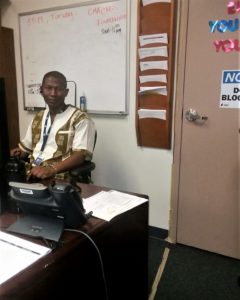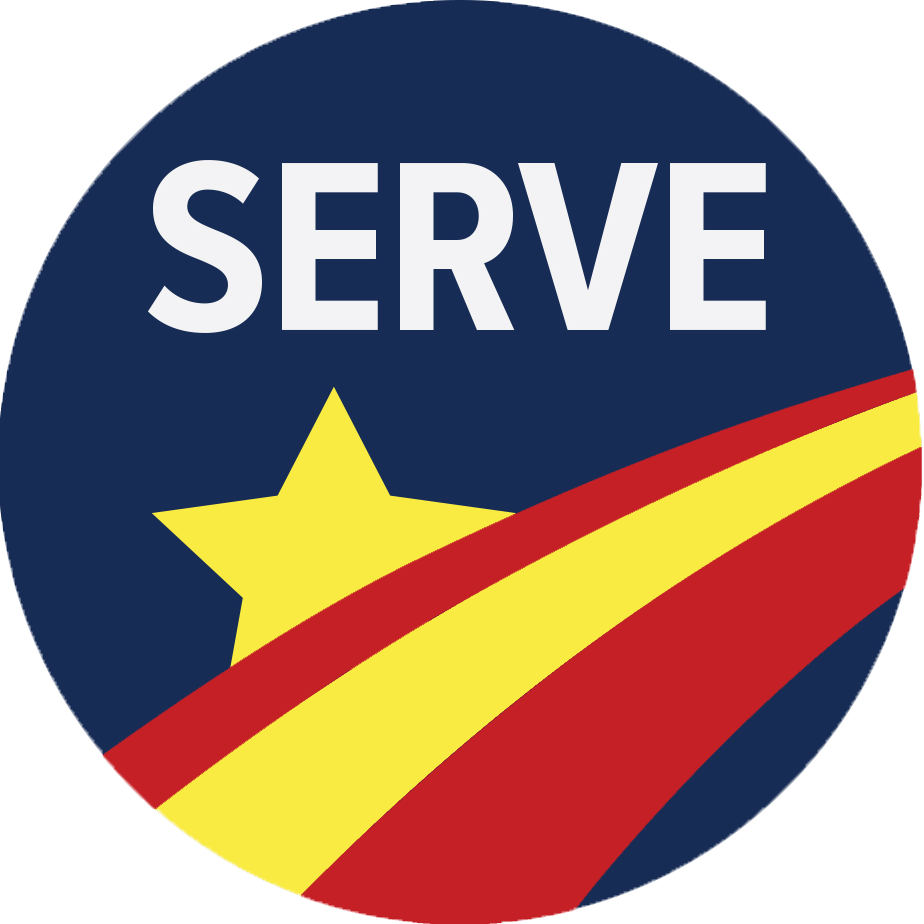
Most days when I enter my service site and open the classroom door, I encounter the quiet rustle of pages or the busy chatter of students. Occasionally, I get a polite and casual question. “Would you like a doughnut?”
I serve as an Academic Tutor at the Fred G. Acosta Job Corps Center in Tucson, Arizona. Job Corps is a vocational training and classroom based education
 program headed by the U.S. Department of Labor. The program helps young adults develop the essential career skills and educational background needed to enter the workforce.
program headed by the U.S. Department of Labor. The program helps young adults develop the essential career skills and educational background needed to enter the workforce.
To be eligible for the program, students must be 16-24 years old. They must also meet certain income based requirements, such as living below the poverty line, being homeless or receiving government assistance.
There are 131 Job Corps facilities nationwide. The Tucson location currently has 270 students and 160 employees. Tuition is free and all resources are provided, including school supplies, food and living arrangements.
The program has several career technical training classes. These hands-on learning classes teach students valuable trade skills. Students can choose to undergo collision repair, maintenance, security, electrical, HVAC, plumbing, nursing assistant, certified medical assistant or administrative assistant training.
As a tutor, I reside in the academic department. The classroom that I serve in is an unofficial special education classroom. It’s like a study hall, a support class for those who need extra help in their other classes.
My classroom is small, with only a few students assigned to each period. I work one-on-one with each student, helping them solve their math problems or going over reading passages. Every month, the students take TABE exams. A passing score on both reading and math will allow them to start pursuing a GED.
I’ve only been with Americorps for a few months, but I’ve already learned that it is beneficial to be ready for the unexpected. About a month and a half in, my schedule was changed. My usual reading and math students were switched out with new kids. These students are preparing to start training to become certified medical assistants. The classroom instructor and I only had a few days to gather assignments and textbooks, so I went online and ordered them immediately.
I hoped they would come in on the first day. They came in on the fourth day.
From there, everything went fine. In the future, I will have better foresight, but the students were hugely helpful and patient during those three days.
In the mornings, I give Powerpoint presentations on topics like body systems and medical terminology. Students test their knowledge by completing various worksheets and discussing critical thinking questions. In the afternoons I continue helping the reading and math students.
My short time in Americorps has shown me that education has great power, especially in the life of a young person. Yes, there are days in which the occasional unmotivated student sleeps in class. But there are also days in which the light of understanding dawns in someone’s eye and a smile crosses their mouth. I remember the two or three times in which a student brought in Krispy Kreme. I would watch as a student (even the classroom instructor himself did this) crossed the room to tell whoever had the box “I’m here for my doughnut.” Most of the students understand that they are here for a reason, and it’s a real pleasure to watch someone go to great lengths to achieve big things. Just recently one student happily announced to the room “I’m graduating next week! You better come visit me at my new job, okay? “
The next graduation ceremony will happen soon, and I can hardly wait. However, if a graduating student offers me a doughnut I will tell them, “Nah. Keep it. It’s yours.”
–Dominique Leon-Guerrero, Americorps State Member
